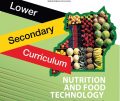
Geography New Lower Secondary Curriculum Syllabus
Nearly all aspects of our lives are influenced by the environment, both natural and human, which we live in. In turn our lives have effects on the environment. Geography deals with this inter-relation between humans and their environment. This relationship is becoming increasingly important as the population of the world grows and the world’s resources remain finite. Thus the key issues of Geography become increasingly important: population growth; soil conservation and erosion; the use and preservation of the oceans; the world’s food supply and food shortages; rural-urban drift, urbanisation and the problems
of urban areas; problems of pollution of all kinds; the conservation of wild life and many related issues.
At this lower secondary level Geography is seen as the study of human communities at local East African and wider African levels, with contrast through specific case studies of other areas of the world. At this level, therefore, the emphasis is on human and regional geography focusing on actual people in actual communities, rather than the more scientific study of spatial relationships which geography becomes at a
higher level. It is felt this is more appropriate for the majority of learners at this level who will leave school without going on to higher education. At the same time it is important for those who do go on to higher education to develop sufficient geographical skills to enable them to specialise at a later stage.
Teaching and Learning: Geography
The thrust of the new syllabuses is experiential and towards deeper understanding and the development of skills. The focus in Geography is on the development of the ability to explore the world around them.
The new syllabuses provide learners with a wide range of contexts in which to develop this understanding, and these contexts are designed to engage the interest of the learner and to provide opportunities to build life-related knowledge, experience and skills. Teachers are encouraged to go beyond the textbooks and provide as many meaningful contexts as possible.
The generic skills have been integrated throughout the curriculum and can only be acquired through active approaches. The role of the teacher is to build on learners’ existing knowledge and experience, but to extend that by posing problems to the learners. This makes them think about their own ideas and experiences as well as adding new knowledge and skills to it.
Learners need to interact with real situations inside and outside the classroom. They need to look at pictures or diagrams, examine statistics, or read texts from a range of sources. They need to find out knowledge and ideas for themselves. They should then be expected to express these in their own words, not those of the teacher, and so demonstrate that they have understood what they have learnt.
In this approach, learners are encouraged to:
- Be responsible for their own learning
- Think for themselves and form their own ideas and opinions
- Become critical thinkers, ready to face new challenges and situations for themselves
Download the Syllabus Here
- baroque books new curriculum download pdf
- biology new curriculum notes
- Biology New Lower Secondary Curriculum Syllabus
- challenges of the new curriculum in uganda
- challenges of the new lower secondary curriculum in uganda
- difference between old curriculum and new curriculum in uganda
- disadvantages of the new curriculum in uganda
- features of the new lower secondary curriculum in uganda
- geography
- geography a1
- geography s2
- geography syllabus
- how to award marks in the new curriculum
- National Curriculum Development Centre
- ncdc art and design textbook pdf
- ncdc biology textbook pdf
- ncdc biology textbook pdf senior two
- ncdc download
- ncdc lower secondary curriculum
- ncdc mathematics textbook pdf
- ncdc new curriculum books pdf
- ncdc new curriculum syllabus books pdf
- ncdc physics textbook pdf download
- ncdc projects
- ncdc prototype books pdf
- ncdc publications
- ncdc senior one new curriculum
- ncdc senior one notes
- ncdc syllabus
- ncdc syllabus pdf
- ncdc textbooks download s2
- ncdc textbooks s2
- ncdc uganda
- new curriculum 2022
- new curriculum chemistry syllabus
- new curriculum for lower secondary
- new curriculum for secondary schools in uganda 2022
- new curriculum in uganda 2022 pdf
- new curriculum in uganda 2023
- new lower secondary curriculum
- new lower secondary curriculum in uganda pdf
- new lower secondary curriculum pdf
- new lower secondary curriculum syllabus
- new lower secondary curriculum syllabus books
- new lower secondary curriculum uganda
- new secondary school curriculum in uganda
- physics syllabus new curriculum
- s.2 biology notes new curriculum
- senior two biology topics
- subjects to be taught in the new curriculum
- What are the new subjects for the new curriculum
 NLSC: SENIOR THREE AGRICULTUREAgriculture,New Lower Secondary Curriculum,Ordinary Secondary
NLSC: SENIOR THREE AGRICULTUREAgriculture,New Lower Secondary Curriculum,Ordinary Secondary  NLSC: SENIOR THREE CHEMISTRY
NLSC: SENIOR THREE CHEMISTRY NLSC: SENIOR THREE GENERAL SCIENCENew Lower Secondary Curriculum,Ordinary Secondary,Sciences
NLSC: SENIOR THREE GENERAL SCIENCENew Lower Secondary Curriculum,Ordinary Secondary,Sciences  NLSC: SENIOR THREE NUTRITION AND FOOD TECHNOLOGYFood and Nutrition,New Lower Secondary Curriculum,Ordinary Secondary
NLSC: SENIOR THREE NUTRITION AND FOOD TECHNOLOGYFood and Nutrition,New Lower Secondary Curriculum,Ordinary Secondary  NLSC: SENIOR THREE CHRISTIAN RELIGIOUS EDUCATION
NLSC: SENIOR THREE CHRISTIAN RELIGIOUS EDUCATION
 What is ChatGPT?General
What is ChatGPT?General Thimbles: A Classic Gambling Game Gone Digital General
Thimbles: A Classic Gambling Game Gone Digital General ENFUMO ZA BUNYORO KITARA (WISE SAYINGS)General
ENFUMO ZA BUNYORO KITARA (WISE SAYINGS)General- WAKISSHA JOINT MOCK EXAMINATION UACE 2024 AGRICULTURE PAPER 5152 marking guideGeneral
- Wakissha 2024 senior four mock exam marking guideGeneral
 UNEB 2024 PLE, UCE and UACE timetables for primary seven, senior four and senior six examsPLE TIME TABLES UACE TIME TABLES UCE TIME TABLES
UNEB 2024 PLE, UCE and UACE timetables for primary seven, senior four and senior six examsPLE TIME TABLES UACE TIME TABLES UCE TIME TABLES
 colline mwangaENG/P/7: RIGHTS, RESPONSIBILITIES AND FREEDOM
colline mwangaENG/P/7: RIGHTS, RESPONSIBILITIES AND FREEDOM Aheebwa JosephDP: Digital Pedagoggy Assignment7
Aheebwa JosephDP: Digital Pedagoggy Assignment7 Aheebwa JosephDP: Digital Pedagogy Assignment5
Aheebwa JosephDP: Digital Pedagogy Assignment5 Aheebwa JosephDP: Digital Pedagogy Assignment4
Aheebwa JosephDP: Digital Pedagogy Assignment4 Aheebwa JosephDP: Digital Pedagogy Assignment2
Aheebwa JosephDP: Digital Pedagogy Assignment2 Aheebwa JosephDP: Digital Pedagogy Final Project
Aheebwa JosephDP: Digital Pedagogy Final ProjectSENIOR FIVE SUB ICT END OF YEAR EXAM ONE 2023
LSC S1: SENIOR ONE HISTORY AND POLITICAL EDUCATION




0 responses on "Geography New Lower Secondary Curriculum Syllabus"